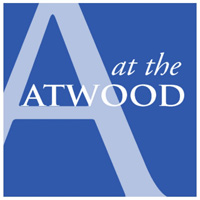
6 Fun History Projects – From the Atwood Museum to Your Home
1) Connect with your community – virtually!
 Do you know about Historic Chatham, a cooperative effort among Chatham’s many museums and organizations focused on history? You can find this group’s website at historic-chatham.org. The website includes history about Chatham, local events, places to explore, a timeline, and more.
Do you know about Historic Chatham, a cooperative effort among Chatham’s many museums and organizations focused on history? You can find this group’s website at historic-chatham.org. The website includes history about Chatham, local events, places to explore, a timeline, and more.
Test your family and your knowledge about key historic landmarks in Chatham or another local community. Locate buildings, markers, and historical sites and map them out so that you can explore them when it’s time to go out again. Describe these points and their importance in building your community.
2) Create your own oral histories
Now, at this historical moment, is a good time to record your own family history, your feelings and observations, and those of your family members. Audio and video combinations are ideal. Producing written transcriptions is also helpful.
Record reflections of the past and share information about your relatives and friends. Your family will be grateful to have this information for generations to come. It is also rewarding to record your knowledge of your ancestors, as you learned about them from family stories. If you have ties to Chatham and vicinity, you can donate this information to the Chatham Historical Society.
We have a series of Oral Histories available to hear or read from transcriptions on this website. More will be added over time. Click here to listen to visit our Oral History Page.
3) Trace your ancestors
 We offer a number of tips on how to research your family in past issues of our Atwood Log, a publication sent out to our members. Click here to view copies of old issues of the Log. The article on genealogy, written by one of our lead archivists, Judy Cunniff, is located in the Fall/Winter 2019 edition, on pages 6-7. You can also find tips on researching your local home in the Spring/Summer 2019 edition, pages 10-11.
We offer a number of tips on how to research your family in past issues of our Atwood Log, a publication sent out to our members. Click here to view copies of old issues of the Log. The article on genealogy, written by one of our lead archivists, Judy Cunniff, is located in the Fall/Winter 2019 edition, on pages 6-7. You can also find tips on researching your local home in the Spring/Summer 2019 edition, pages 10-11.
4) Read history books and historical fiction

Explore our community through books. Local authors like Nathaniel Philbrick, Debra Lawless, Joseph C. Lincoln, William Martin (from up the road), and Sally Gunning recreate rich descriptions of early life on Cape Cod.
5) Digitize your family photographs
Scan and annotate those family photographs that were taken with old-fashioned cameras. Instead of letting those images fade as they gather dust in a box, it’s time you digitize them. As you digitize and organize your family photographs, try to gather as much information about the images as you can. Share your photographs with your family members. They will appreciate your work. Put the information, along with the images, into the cloud, or at least onto an online document. Keep paper copies with your family documents and include notes on where they are placed electronically.
6) Assess your family antiques, family keepsakes, and collectibles
Do you have a clear plan for what you want to do with your important family items in the future? How many items do we own that will become a mystery to our children and their descendants if we don’t designate them now?
If your important items are museum-worthy and your family is ready to release them, consider donating them to your local historical society. Please keep in mind that most societies/museums have restrictions and a process to accept these donations. It can take some time to go through the donation process with a charity of your choice.
Some criteria, used by organizations like ours, which accept donated items, may include the following questions:
 Do the items have a local connection?
Do the items have a local connection?- Do the items have good provenance (a record of its origin and history)?
- Are the donations completely free of restrictions?
- Would the items be unique to the museum collection or does the organization already have similar pieces?
- Are the items in excellent condition?
- What are the dimensions?
- Would a donation of items include funds for storage and preservation?
If you are interested in donating items to the Atwood Museum, feel free to send us an email with images and details to the Executive Director, Kevin Wright, at [email protected]. Our Accessions Group normally reviews potential donated items monthly.
